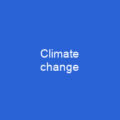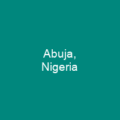Nigeria: A Country of Vast Potential and Complex Challenges
Imagine a land where the past meets the future, where ancient traditions intertwine with modern progress – that’s Nigeria. This West African giant, officially known as the Federal Republic of Nigeria, is home to over 230 million people, making it not only the most populous country in Africa but also the sixth-most populous on Earth. Its rich history and diverse culture make it a fascinating subject for exploration.
Geography and Climate
Nigeria covers an expansive area of 923,768 square kilometres, bordered by Niger to the north, Chad to the northeast, Cameroon to the east, and Benin to the west. Its coastline stretches at least 853 kilometers along the Gulf of Guinea. The country’s geography is as diverse as its people – from rugged highlands in the southwest to vast savannahs in the central regions, and lush rainforests in the southeast.
The climate varies significantly across these regions. The far south enjoys a tropical rainforest climate with annual rainfall between 1,500 and 2,000 millimeters (60 to 80 inches). In contrast, the savannah region receives less than 500 millimeters of rain per year.
History and Pre-colonial Era
Before the arrival of Europeans, Nigeria was home to several pre-colonial states and kingdoms. The Hausa Kingdoms, Edo Kingdom, Igbo Kingdom, and Yoruba Ife Empire were just a few of these ancient civilizations that thrived long before the 19th century.
With the advent of British colonialism in the late 19th century, Nigeria began to take its present territorial shape. The modern state was officially established on October 1, 1960, after a tumultuous period marked by civil war and military dictatorships. Today, it is a multinational state with over 250 ethnic groups speaking more than 500 distinct languages.
Modern Nigeria: A Diverse Nation
Nigeria’s diversity is not just linguistic but also religious. The country is roughly divided into two major religious groups – Muslims in the north and Christians in the south, with a significant minority adhering to traditional African religions or other faiths.
Economically, Nigeria is a regional power in Africa and a middle power in international affairs. Its economy, the fourth-largest in Africa, has seen significant growth despite challenges such as corruption and mismanagement during periods of military rule.
Challenges and Opportunities
Nigeria faces numerous challenges, from environmental issues like deforestation and pollution to security concerns such as Boko Haram attacks. However, it also presents immense opportunities for development, particularly in the energy sector where Nigeria is a major oil producer.
The country’s manufacturing industry, telecommunications market, and burgeoning film industry (Nollywood) are just some of the sectors driving its economic growth. Despite these advancements, poverty remains a significant issue, with 32% of Nigerians living in extreme poverty as of recent reports.
Conclusion
Nigeria is a complex nation, rich in history and culture yet grappling with modern challenges. Its future depends on how well it can balance its diverse communities, address economic inequalities, and harness the potential of its vast natural resources. As Nigeria continues to evolve, one thing remains clear – this country’s story is far from over.

You want to know more about Nigeria?
This page is based on the article Nigeria published in Wikipedia (retrieved on December 22, 2024) and was automatically summarized using artificial intelligence.






